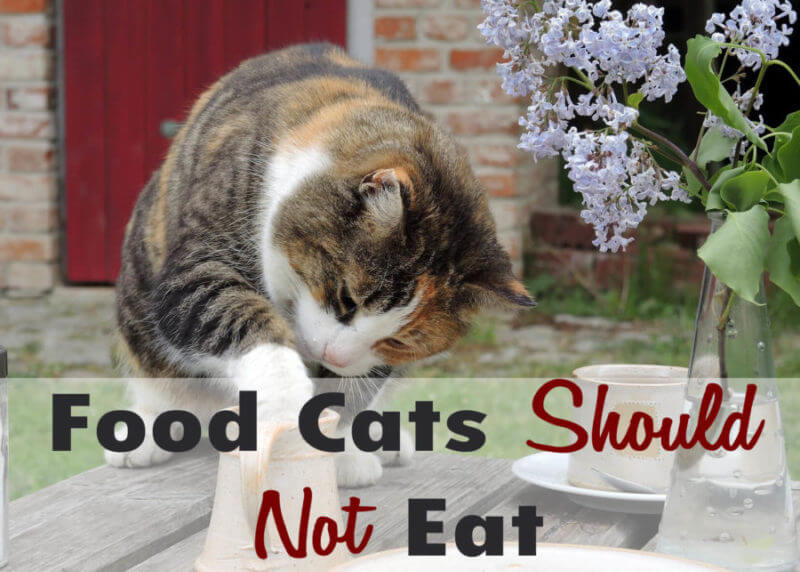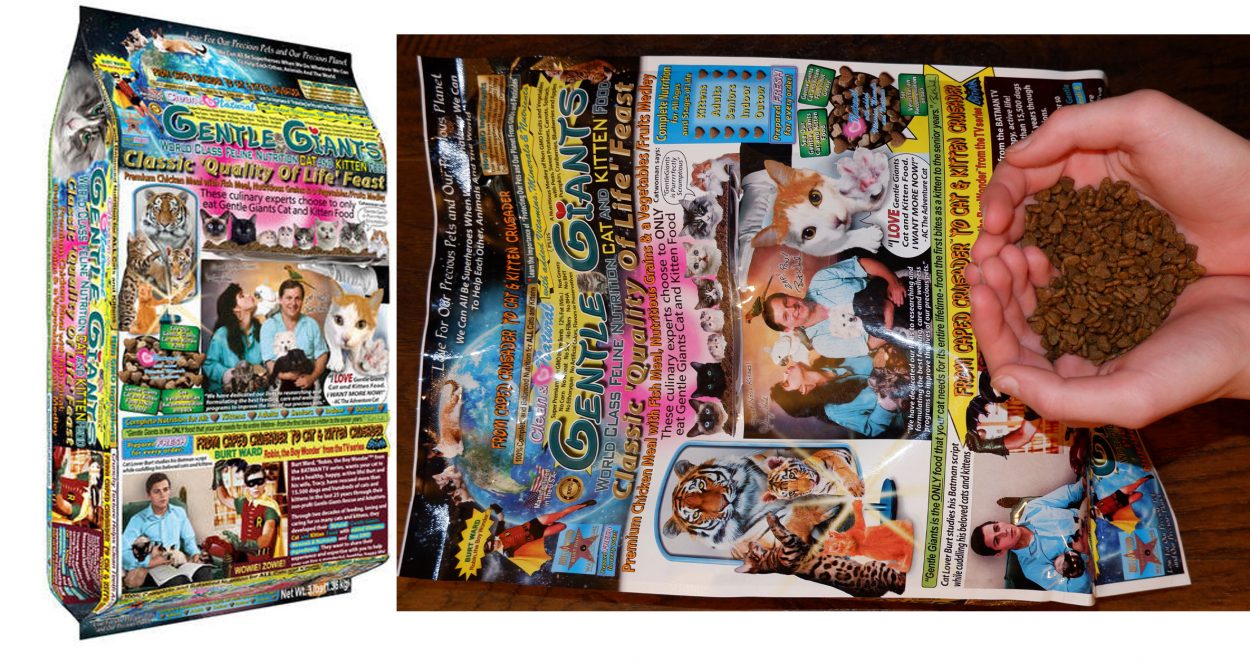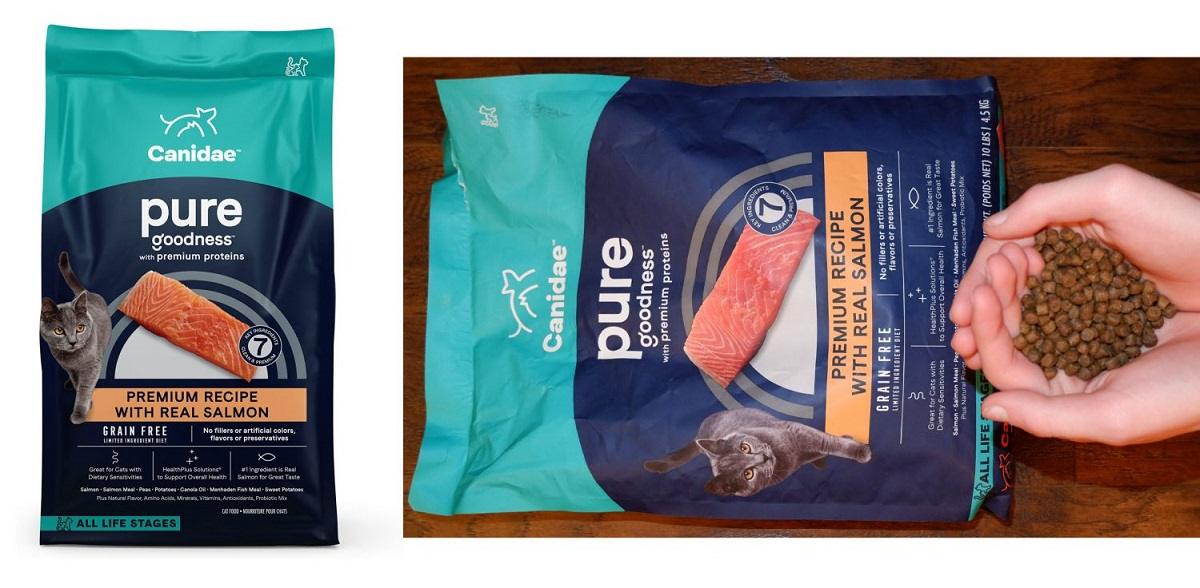What Foods Cats Should Not Eat?
This page contains affiliate links. We may earn money or products from the companies mentioned in this post through our independently chosen links, which earn us a commission. Learn More

During the holidays the most common question being asked is,”can my cat eat turkey ?” or “what foods should my cat not eat?”. While it maybe tempting to share human food with your cat, it is not always the best treat. There are many human foods that are toxic as well as unhealthy for your kitty.
Below is a list of foods cats should not eat and a few they can.
Bread
There is no real benefit for cats eating bread, and the high sugar and salt content can actually do more harm than good. If your cat gets a hold of some bread, a tiny bit should not harm him, but there is no nutritional reason to offer bread. Under no circumstances should you ever provide your cat with bread dough. If you bake your own bread at home, make sure it is covered while it rises to reduce the chance of your cat sneaking a bite.
Canned Tuna
Tuna is a common food for humans, whether it be a quick snack, out of the can, or as part of a larger meal. As much as cats love fish, they may show an affinity for tuna that outweighs even the hungriest human. High concentrations of mercury can lead to neurological disorders in cats. Over time, eating canned tuna can lead to depletion of vitamin E.
Raw Meat
While cats are meat eaters, they should only have a bite or two of well-cooked, unseasoned meat proteins, that contain no bones. Raw meat poses the same risks to cats as it does humans but it takes much less to make a cat sick.
Grass
Whether you have an indoor or an outdoor cat, you should make sure that all your household plants are of the non-toxic variety. You may also want to plant a small tray of grass just for the cat, or start an outdoor garden of herbs and grass. This will give your cat an alternative to the neighbors grass which could lead to accidental ingestion of pesticides, herbicides, or chemicals that may have been used to treat the yard.
Garlic
Some humans believe garlic or garlic tabs can repel fleas. It is toxic to cats like onions, destroying red blood cells.
Milk & Dairy Products
Contrary to popular belief, cats should not consume milk or cheese. Most cats are lactose intolerant, lacking the enzymes to break it down. Even a small amount can cause diarrhea and stomach upset.
Onions
Both raw and cooked onions are toxic to cats. Onions can be lethally toxic and it only takes a small amount of onion powder to create a serious health issue like damage to red blood cells. Your cat should avoid eating table-scraps because they may contain onions.
Chocolate
Chocolate contains a substance called theobromine which is highly toxic to animals. It can cause heart attacks, vomiting and diarrhea. Even a small amount of chocolate may be deadly to a cat.
Grapes and Raisins
A small amount of grapes or raisins (juice, baked goods and wine) can be toxic, causing kidney failure in both cats and dogs.
Bones
Bones should never be offered to cats. Bones can splinter, puncturing a cat’s digestive track as well as cause obstructions or lacerations in the digestive system.
Avocado
No part of the avocado should be given to cats. The ingredient Persin can cause a cat to vomit or have diarrhea.
Caffeine
The amount of caffeine in your morning coffee is more than enough to harm your cat. Caffeine toxicity in cats can cause:
- Hyperactivity
- Seizures
- Increased heart rate
- Tremors
- Breathing difficult
In Case of Emergency
If you suspect your cat ingested any of the above mentioned foods, determine how much he might have eaten. Call your veterinarian immediately. If your vet is not available, contact the ASPCA Animal Poison Control Center Phone Number: (888) 426-4435. The ASPCA Animal Poison Control Center is your best resource for any animal poison-related emergency, 24 hours a day, 365 days a year. In many cases small amounts are not likely cause problems, but larger quantities may require you to induce vomiting in your cat or get her to your veterinarian.
Human Food Cats Can Eat
Now lets look at some of the foods humans eat that can be introduced into a cat’s diet. Some are even a good source of vitamins and provide health benefits such as eye health, energy and helping digestion.
Fish
Fish has a lot of omega-3 fatty acids, which help with arthritis, kidney disease and heart disorders. Cooked fish is fine for a treat but raw fish is never a good idea.
Veggies
Not all cats like vegetables but they are a rich source of vitamins, loaded with fiber and full of water to help with digestion. Try fresh cucumber, steamed broccoli or asparagus or maybe even a veggie burger.
Cantaloupe
Cantaloupe is one of several cat-safe fruits that is high in antioxidants and beta-carotene. This helps maintain healthy skin and eye health.
Bananas
High in potassium and soluble fiber, bananas are safe for a cat treat.
Oatmeal
Oatmeal is a human food found in commercial cat foods. It’s a great source of energy and many important nutrients such as iron and vitamin B-6.
Turkey
Cooked lean turkey breast or sliced deli meat is a cat safe treat. Make sure it is cooked thoroughly and bone free.
Eggs
Eggs are another great source of protein for your cat. Always make sure they’re cooked completely to prevent salmonella or E-coli.
Conclusion
Always keep human food out of reach from your cat. If you give your cat “safe” human food as an occasional treat remember that if you wouldn’t eat it, don’t feed it to your cat. Giving your cat human foods should only be done after getting your veterinarian’s approval and only in small quantities. If your cat has had no negative reactions to foods on the “safe” list, you can be a bit more generous.


